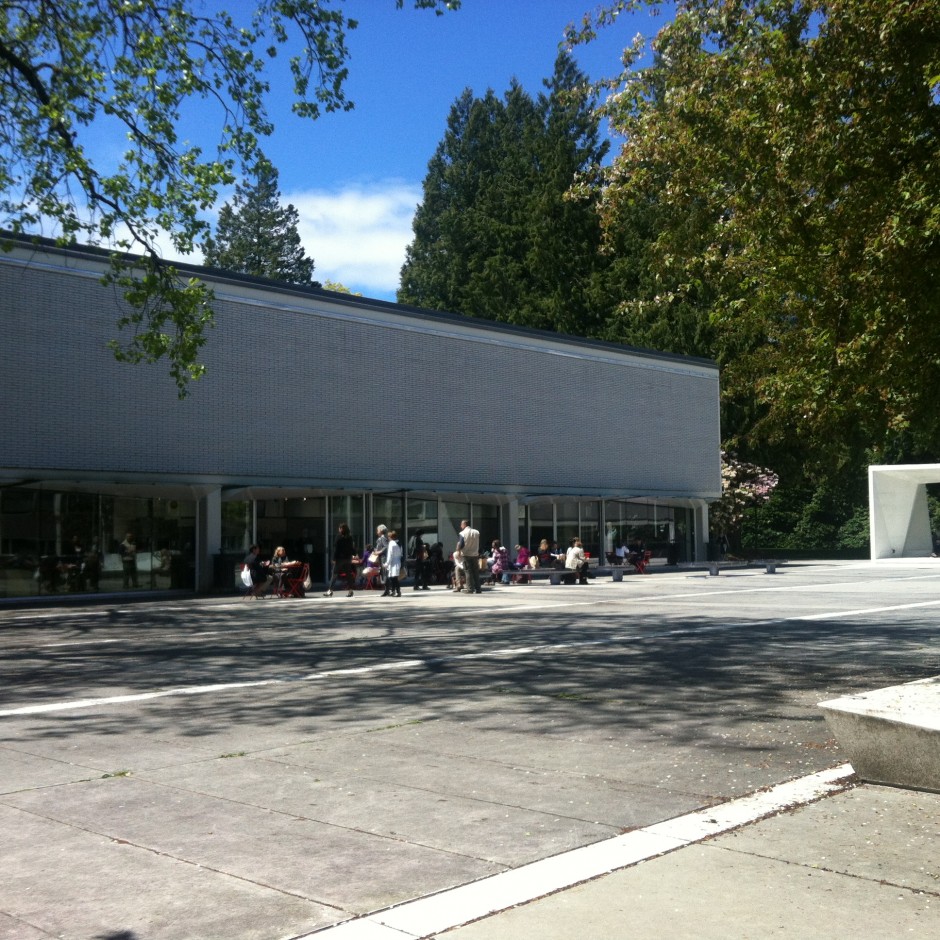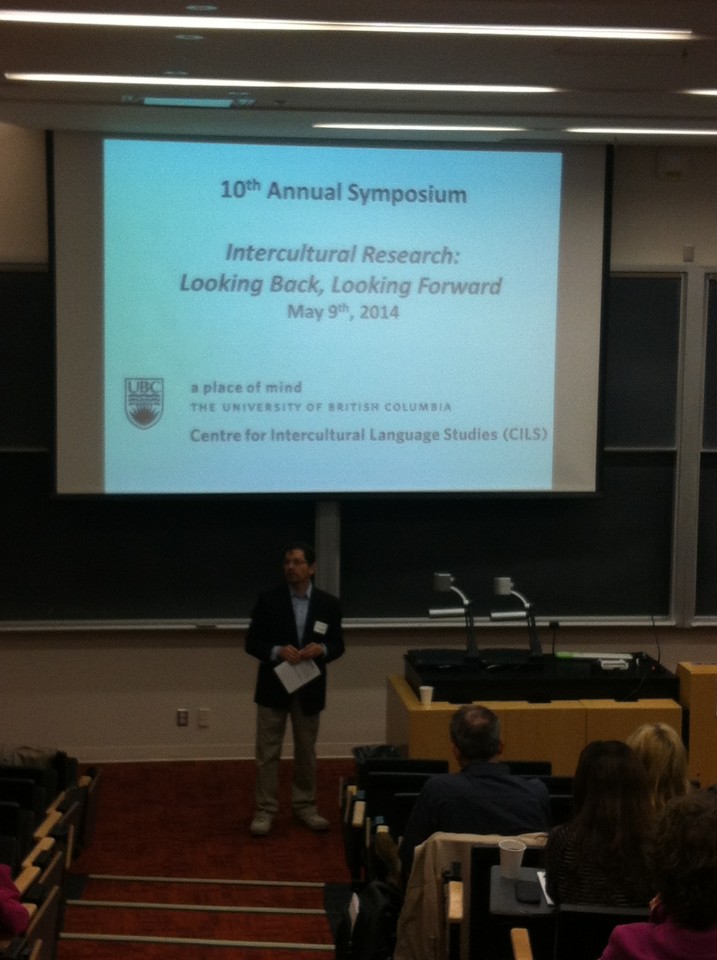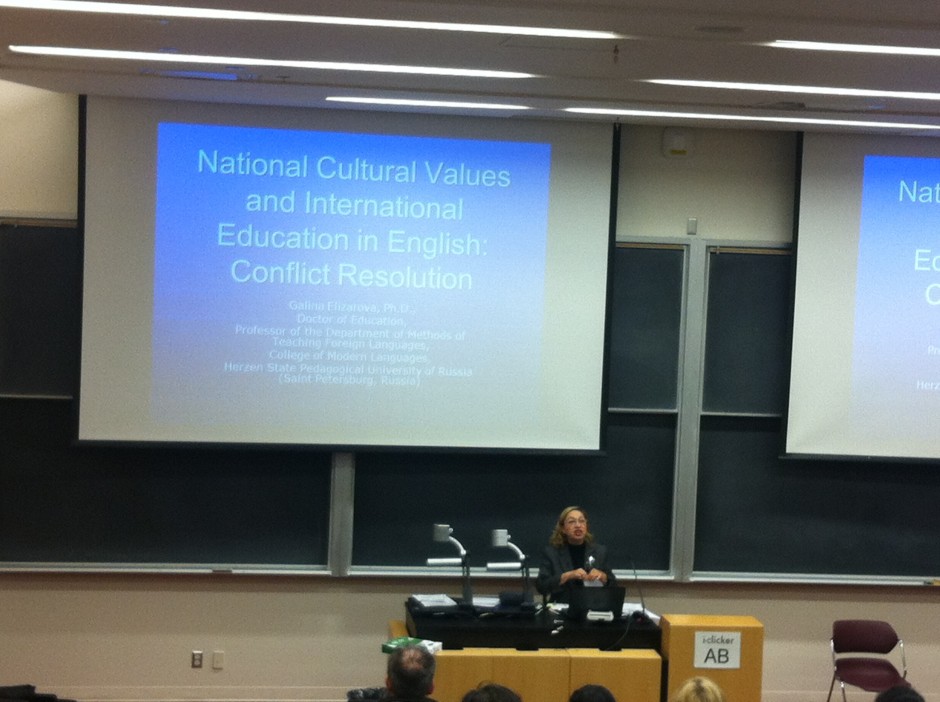CILS 10th Annual Symposium
Intercultural Research: Looking Back, Looking Forward
Friday, May 9, 2014 | 8 am – 5 pm
The University of British Columbia
Keynote address by Dr. Galina Elizarova
National Cultural Values and International Education in English: Conflict Resolution
This talk will focus on why Russian exchange students with a perfect command of English do not understand what is expected of them in the US and act differently, and why native speakers of English might be confused by the linguistically flawless English of Russians. It happens because native cultures dramatically affect the way people communicate in foreign languages. The presenter makes an attempt to prove it and offers some solutions to conflicts that arise from different meanings of “being punctual, loyal, responsible, independent”, and other crucial concepts in different cultures.
Please view key note address via the following link:
Dr. Elizarova’s key note address
You can now view the online version of 2014 CILS Symposium Proceedings via the following link:
Centre for Intercultural Language Studies hosts annual symposium that brings together researchers and practitioners from institutions across Canada and internationally.
This year CILS Symposium took place on May 9th, 2014 on UBC Vancouver campus and was attended by 100 people.
The key note address
National Cultural Values and International Education in English: Conflict Resolution
was delivered by Dr. Galina Elizarova from Herzen State Pedagogical University of Russia
Abstract:
Within the framework of cognitive linguistics (Langacker, 1987; Talmy, 2000), Dr. Elizarova analyses learning foreign languages as a part of human cognition. Emphasis is given to the nature of one’s own native culture and how it affects all personal aspects. They certainly include communication in another language. The latter becomes critical when learners lack exposure to the cultural values of the target language community. Drawing on her own research, Dr. Elizarova demonstrates how Russian university students construe messages in English relying on their native conceptualization of time, personal space, law, etc. When these students go on exchange to the United States, they realize that their messages, albeit morpho-syntactically correct, convey values and beliefs that are strikingly different from those of the target culture. For example, some students truly believe that if they process ideas from the literature to the point that they feel the ideas become their own, they are less obliged to cite the corresponding sources. Approaches to resolving conflicts through cultural mediation as a classroom practice are offered.
This Symposium was different from the previous ones, because it included theoretical papers as well as practical workshops. Samuel Navarro, Mackie Chase, and Karen Rolston delivered a workshop: Engaging Interculturally: Finest Moments and Best Mistakes in which they invited the audience to reflect on changes in teaching practices as post-secondary education environment is becoming increasingly intercultural.
Abstract:
In this workshop, we will work around the notions of relevance, reciprocity, responsibility, and respect (Kirkness & Barnhardt, 2001) as a concrete proposal to promote relatively healthy intercultural exchanges in a Canadian post-secondary environment. When students join an institution such as UBC, they bring their own mental frameworks that are heavily loaded with linguistic and cultural information, with hopes, expectations, objectives. The university and its educators certainly have their own objectives/expectations and beliefs of how things should be done. Ideally we expect that, for example, students and educators find that their expectations are in alignment, but likely not all them will be. How sensitive are we to those differences? Is there respect across those different ways of doing things? Are students willing to adjust to the host educational community or do they simply expect to be accepted? What is our role, as UBC representatives and educators, to adapt? Drawing on real life examples of intercultural conflicts, the audience will reflect on the concepts of the four “Rs”. They will also contribute their own stories of finest moments and best mistakes. Strategies for safe intercultural engagement will be presented.
CILS exercise 2014 Finest Moments Best Mistakes
Symposium program and abstracts of presentations: ProgrCILS_2014


